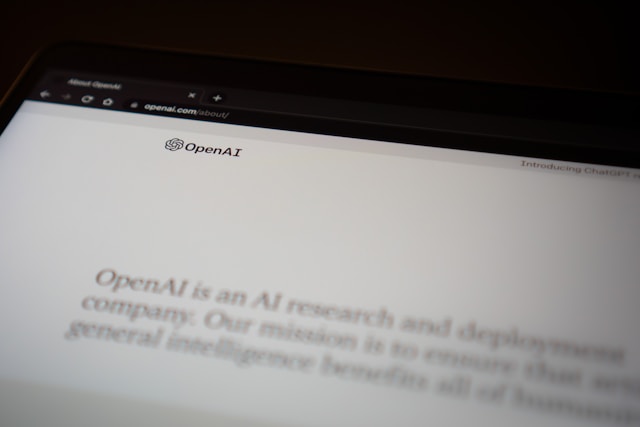Hello, fellow AI enthusiasts! Today, we’re going to dive deep into the world of openai research. If you’ve always been fascinated by artificial intelligence and its potential, this guide will help you understand and explore the cutting-edge research being conducted by OpenAI, one of the leading organizations in this field.
To fully grasp the concepts and developments in OpenAI research, you’ll need a few things:
- Basic knowledge of AI and machine learning concepts. Don’t fret if you’re not an expert; I’ll provide some handy resources to get you up to speed.
- Access to OpenAI’s research papers and blogs. They are freely available on their website.
- An analytical mindset. Remember, we’re diving deep, so be prepared to analyze and question the information you encounter.
Here’s how you can start exploring OpenAI research:
- Start with the basics: Before diving into the research papers, familiarize yourself with the fundamental concepts of AI and machine learning. I recommend AI for Everyone on Coursera as a great starting point.
- Dive into OpenAI’s blogs and papers: Now that you have a solid foundation, it’s time to dive into the sea of knowledge that is OpenAI research. Start with their blog posts. These are relatively easy to understand and provide a good overview of their current projects and breakthroughs.
- Join the OpenAI community: OpenAI has a vibrant community of AI enthusiasts and experts. Participating in their forums can provide valuable insights and answer any questions you may have.
Tips and Tricks
Navigating the complexities of openai research can be challenging. Here are a few tips to make your journey smoother:
- Stay updated: OpenAI is always working on something new. Stay updated by subscribing to their newsletter or following them on social media.
- Apply what you learn: The best way to understand a concept is to apply it. Try recreating some of the experiments mentioned in the research papers.
- Never hesitate to ask for help: If you’re stuck, don’t hesitate to ask for help. The OpenAI community is always ready to assist.
Conclusion
Exploring the world of OpenAI research is a journey like no other. It gives you a first-hand look at the advancements being made in AI and machine learning. So, put on your thinking cap, divein, and start your adventure in this fascinating realm of knowledge.
As you journey through openai research, remember to take your time. The world of AI is vast and complex, and it could be overwhelming at first. But don’t let that deter you. With each paper you read, each concept you grasp, you’ll find yourself understanding more and more of this fascinating field.
You may also want to bookmark this glossary of AI terms to help you understand the technical jargon you’ll encounter in the research papers. And don’t forget, the OpenAI community is always there to help you out when you’re stuck.
Lastly, remember to enjoy the process. It’s not just about understanding AI—it’s also about appreciating the astonishing feats of human ingenuity that have led us to this point.
Now that you have a basic understanding of openai research and how to navigate it, you are well on your way to becoming an AI aficionado. But remember, this is just the beginning. The field of AI is vast and constantly evolving, so continuous learning is key.
Further Learning
To expand your knowledge further, consider exploring these resources:
- OpenAI’s Charter: This document outlines OpenAI’s commitment to ensuring that artificial general intelligence (AGI) benefits all of humanity. Understanding this charter can provide valuable context to the organization’s research endeavours.
- OpenAI’s GitHub: This platform hosts all of OpenAI’s publicly available software. It’s a treasure trove for those interested in the practical applications of AI research.
- AI Conferences and Workshops: Events like NeurIPS, ICLR, and OpenAI’s own AI Workshop can be excellent platforms to learn about the latest advancements, meet like-minded individuals, and event.
- Engage with AI Experts : While formal resources like blogs, papers, and courses are great, nothing beats the firsthand knowledge you can gain from interacting with experts in the field. Participate in AI forums, Twitter threads, and LinkedIn groups. Engage with AI researchers, data scientists, and other enthusiasts in the field. Don’t be afraid to ask questions, share your insights, or even propose new ideas.
Explore OpenAI’s APIs
OpenAI has developed several APIs that allow you to interact with their AI models directly. APIs like GPT-3 and Codex offer a unique opportunity to play with cutting-edge AI technology. By using these APIs, you can see the results of OpenAI’s research in action, which can help you understand the practical implications of their work.

Leave a Reply